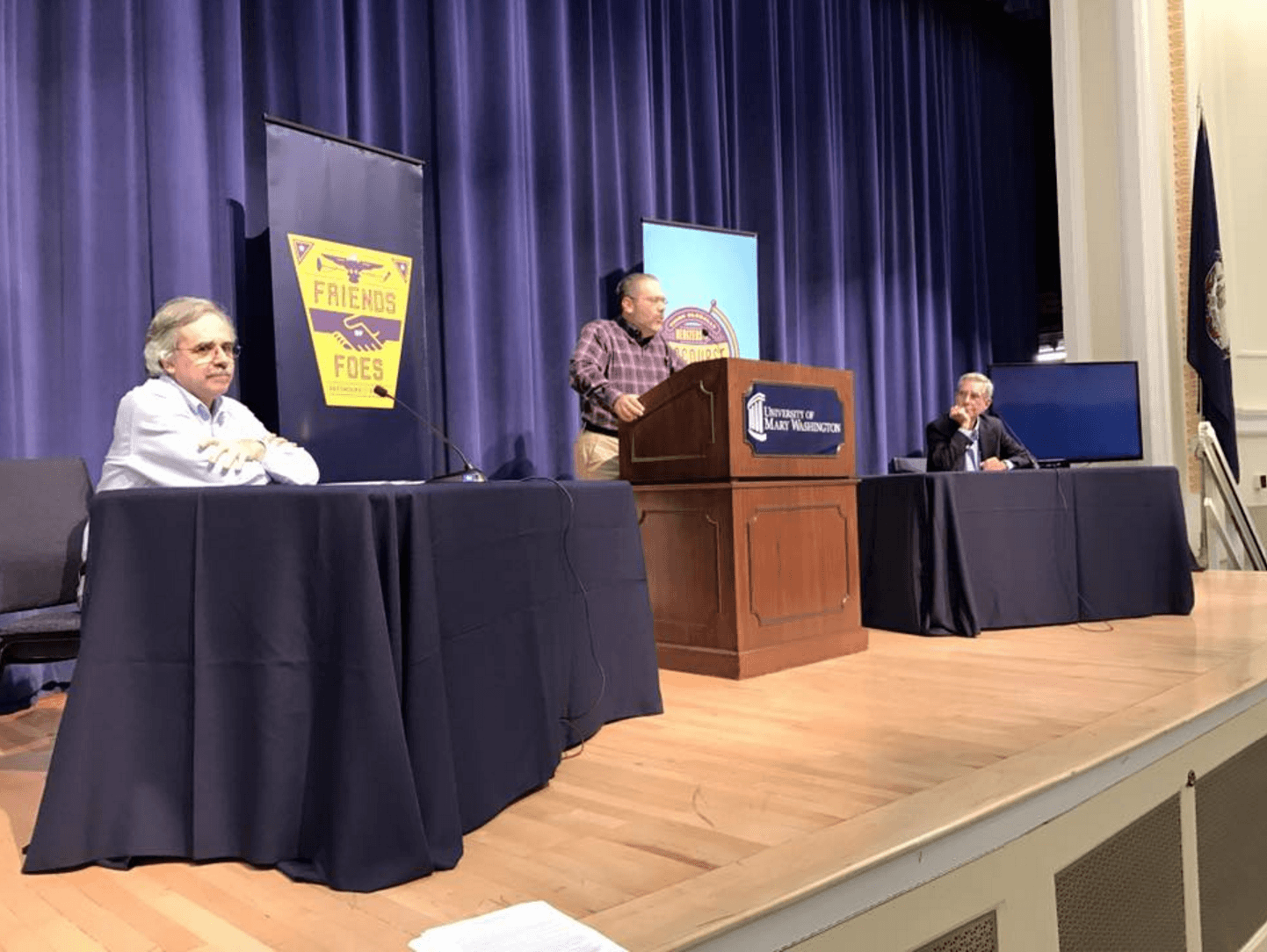UMW hosts Podius debate on media bias, invite distinguished California professor
3 min read
UMW Speaking Center
By IZZY BRIONES
Talk of sugar daddies, junk food and Thomas Jefferson were just a few of the courses that Monday night’s debate took. The audience pondered and questioned these points among others, while staring at their phone screens and texting.
An audience sat in Dodd Auditorium on Monday night for the Podius debate on media consumption. Titled, “Media Bias is a Threat to American Democracy,” the debate brought in a varied audience with participants ranging from college students to professors and coaches. Ray Suarez, an American broadcast journalist served as the moderator of the debate between professors Dr. Stephen Farnsworth of the University of Mary Washington and Dr. Craig Smith from California State University- Long Beach.
Smith is a distinguished scholar who has served as a full-time speechwriter to President Gerald Ford and was a consultant to George H. W. Bush during his 1980 run for the presidency. Smith has published more than 15 books and has received many significant awards, including the Douglas W. Ehninger Award for lifetime achievement in rhetorical scholarship by the National Communication Association.
Suarez opened the debate by encouraging the audience to use their phones to participate in an online poll. The question: is media bias a threat to democracy? The outcome revealed that most saw social media as having a direct impact on democracy in the United States, while others remained unsure.
To believe the media and accept it as a neutral and credible source “well then we are lost” said Farnsworth. “I am a big fan of journalism when it is done right.” This point was repeatedly made throughout the debate on both sides among others such as the United States’ reliance on reporters and journalists through social media.
Both speakers highlighted the issue of the fundamental human need and predisposition to turn to and to look for the news that one wants or wants to hear. This quality however, hinders one’s perception of the news and forms their biases, thus resulting in the question of media bias being a threat to democracy.
“Fact is, there is no such thing as media…[media] bias is different than prejudice,” Smith said. “News media is less a result of ideology than a result of geography and competition,” arguing his point that news naturally caters to and aims to appeal to its viewers who have their own opinions.
Farnsworth described news through social media as “junk food,” as it has no real nutritional value to the people. “Junk food,” as he called it, makes competition easy- just as news through social media does. He continued his thought, describing how the people need to demand “healthy options” just as they need to demand concrete and unbiased news sources. Both he and Smith agreed that a healthy dialogue was also needed in order to create an educated society that could form unbiased opinions.
“I feel like neither of the debaters were able to completely [capture] how we would get rid of the biases and how we would focus more on facts in media representations,” said Kaitlyn Bryant, an International Affairs major. The debate sparked many questions in the audience, however the essential question remained unanswered.
Podius debates host many events throughout the country, this fall there have been three total in the U.S. and the University of Mary Washington was able to house the third Podius Debate in the series.
It was established in 2014, “to help Americans preserve and strengthen their democratic institutions by championing intelligent and thoughtful civic discourse,” according to Podius’ description in their pamphlet.
Future events lay ahead at UMW similar in theme to Monday night’s Podius debate. On Oct. 24, UMW will be hosting the first Congressional District Debate at 7:30 p.m. in Dodd Auditorium.
The community is invited to come and see U.S. Republican Rob Wittman debate with Democratic challenger Matt Rowe.


